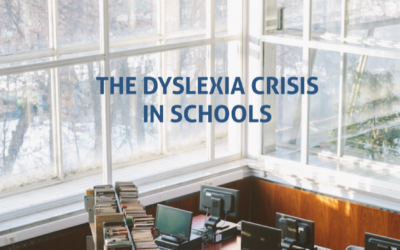***. This article was previously a Premium post. Thanks to a donation by Christina, we've made this post public! The assessment of dyslexic students and employees is in dire need for a reassessment itself. Many institutions have decided that the most expedient...
Multiple Choice Questions and Dyslexia [Premium]
One bane of higher education and professionals is the ubiquity of multiple choice questions and tests acting as gatekeepers for higher levels of credentialing, program admission, or pay. This problem affects individuals seeking their GED, drivers licenses, college entrance exams, graduate school exams, professional licensing and credentialing exams, and formal performance reviews in company settings. Individuals with stellar educational and work achievements, may find their advance in schooling or job positions blocked because of trouble on multiple choice tests which may hold inappropriate sway on assessments and evaluation. Why? WHY MULTIPLE CHOICE TESTING IS A COMMON CHOICE FOR ASSESSMENT One of the reasons that multiple choice questions are so pervasive is that once written, a database of questions can be used to automate […]
Finding Dyslexia: Don’t Delay
"When I first heard that I had dyslexia, I was overwhelmed by emotions; I was angry, sad, and very confused. With time, I began to see my diagnosis as a self-affirmation. I had been correct in suspecting that I had a problem with learning, when many of the adults...
The Dyslexia Crisis in Schools
The house is on fire. There is a conflagration of factors coming together that are affecting dyslexic students in public school beyond COVID. COVID certainly has its share of blame and breaking the camel's back when it comes to providing essential services to...
What Kind of Dysgraphia [Premium]
A recent clinical review of dysgraphia has defined dysgraphia in the following way: “At its broadest definition, dysgraphia is a disorder of writing ability at any stage, including problems with letter formation/legibility, letter spacing, spelling, fine motor coordination, rate of writing, grammar, and composition.” Developmental dysgraphia (i.e. dysgraphia not based on some known injury) is described in the same article as having a “difficulty in acquiring writing skills despite sufficient learning opportunity and cognitive potential.” When a teacher or other professional asks a parent about “what type of dysgraphia their student might have,” they may be referring to the so-called “5 Types of Dysgraphia”, that often include, “motor”, “dyslexic”, “spatial”, and so on – but these distinctions are rarely clear-cut in real life and […]
Processing Speed and Dyslexia [Premium]
“I’m still slow at reading but I’ve learned to adjust…while you will have dyslexia for the rest of your life, you can dart between the raindrops to get where you want to go. It will not hold you back.” – Steven Spielberg WHAT IS PROCESSING SPEED? Processing speed generally refers to the speed required to take in information, do cognitive work, and respond. For dyslexic children and adults, processing speeds can vary dramatically depending on the types of stimuli, types of mental work, and types of responses expected. PROCESSING SPEED CHANGES AND CHANGES OVER TIME In the setting of dyslexia, processing speeds for different tasks also vary dramatically with age. Typical “late-blooming” children may be much slower than same age peers in early grade […]
How to Avoid Delays in Identifying and Helping Students With Dyslexia Due to COVID-19
With news of the disruption in special education assessments across the country, I asked Brock to comment on the situation and share how the Neurolearning app could be helpful. The app is available for students ages 7 - 70. By Brock Eide MD: A recent article in...
Students Untested Due to Pandemic
A recent article has sounded the alarm that schools and entire school districts are unable to assess and meet the needs of LD students. As an example, after a math teacher raised a question that a student was dyslexic, a parent initiated a process last January to have...
Q & A: Map Testing
Across the United States, millions of K-12 school children take the NWEA MAP or Measures of Academic Progress tests. Using a computerized adaptive test it assesses math and reading in the early grades, and language usage and science for older students. By having...
Test Accommodations for Students with Dyslexia Under the ADA – DOJ Statement
The Department of Justice has also released video clarification of key rights for students regarding testing accommodations under the ADA or Americans with Disabilities Act. The entire video is located at the bottom of this post, but we are highlighting a section...
Breaking Research : Dyslexia in Adolescents and Adults [Premium]
An important paper was published this month from the University of Washington, entitled “Evidence-Based Reading and Writing Assessment for Dyslexia in Adolescents and Young Adults.” The paper is especially important guiding testing professionals who assess teens and adults for dyslexia or see gifted or twice-exceptional students. This paper also takes a more systematic look at the roles of individual factors like working memory and executive function on dyslexia and reading and spelling performance. The data will be helpful in targeting educational interventions and can also guide requests for testing accommodations. There are interesting observations too in that paper that will help with characterizing the strengths that occur among adolescent and adult dyslexics, with implications for twice-exceptional or gifted students with dyslexia. In several areas, adolescent / adult […]
Could Dyslexia and Dysgraphia Affect IQ Scores? [Premium]
From our Community: Can Dyslexia and Dysgraphia Affect IQ Scores? My son got officially diagnosed with both dyslexia and dysgraphia this week. I suspected he would come back with the diagnosis. What surprised me a bit were his IQ scores. The scenario is a common one – one sibling is dyslexic while the other is not. The non-dyslexic student qualifies easily for a highly capable / gifted program while the dyslexic one does not…although that may be the one who is a “head turner” because of creative thinking, intuitive leaps, and general reasoning and questioning capacity. The short answer is YES. There are many individual factors that can affect the accuracy of a student’s testing. A student’s temperament (perfectionistic, introverted), oral fluency, persistence / resilience, verbal […]


![Multiple Choice Questions and Dyslexia [Premium]](https://www.dyslexicadvantage.org/wp-content/uploads/2022/01/Choices-e1641384810543-400x250.jpg)


![What Kind of Dysgraphia [Premium]](https://www.dyslexicadvantage.org/wp-content/uploads/2021/09/What-kind-of-dysgraphia-2-400x250.jpg)
![Processing Speed and Dyslexia [Premium]](https://www.dyslexicadvantage.org/wp-content/uploads/2021/04/processing-speed-3-329x250.png)




![Breaking Research : Dyslexia in Adolescents and Adults [Premium]](https://www.dyslexicadvantage.org/wp-content/uploads/2016/02/Screen-Shot-2019-10-08-at-4.23.50-PM.jpg)
![Could Dyslexia and Dysgraphia Affect IQ Scores? [Premium]](https://www.dyslexicadvantage.org/wp-content/uploads/2016/06/dyslexia-dysgraphia-iq.jpg)













